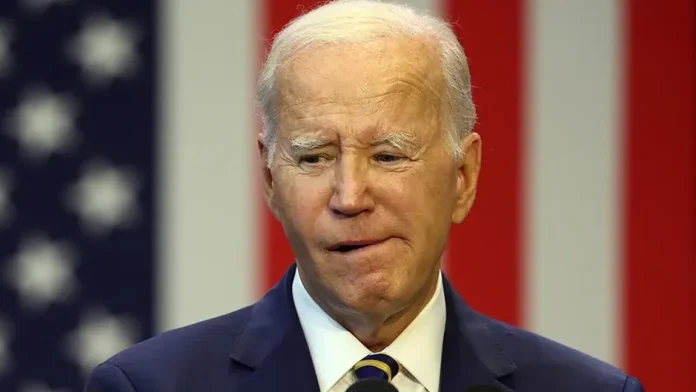President Joe Biden and former President Donald Trump are scheduled to face off in the first of two presidential debates on June 27, following the finalization of the debate rules by the organizers. These rules, announced by CNN, include a significant change: moderators will have the authority to mute the candidates’ microphones during the debate. This measure is intended to ensure a more orderly discussion and prevent interruptions, which have been a point of contention in past debates.
In addition to this new rule, the debate will feature two commercial breaks during the 90-minute session. However, campaign staff will not be allowed to interact with the candidates during these intermissions, maintaining the focus on the candidates’ performance and responses. Candidates will be provided with a pen, a pad of paper, and a bottle of water but are prohibited from bringing any prewritten notes or props to the stage. This rule is designed to ensure the spontaneity and authenticity of the candidates’ responses.
This marks a departure from historical precedent, where microphones remained on throughout presidential debates between major party candidates. The change was first introduced in 2020 by the Commission on Presidential Debates, allowing moderators to mute microphones during the second and final debate before the election. This adjustment was made to address the frequent interruptions and chaotic exchanges that characterized the initial debate that year.
While the Biden and Trump campaigns have reached an agreement with CNN on the debate details, the potential inclusion of independent candidate Robert F. Kennedy Jr. remains uncertain. The debate rules stipulate that candidates must achieve at least 15% support in four national polls and appear on enough state ballots to theoretically win a majority of the Electoral College votes (270 out of 538) to be included. Kennedy has met the polling threshold in three national polls but currently has confirmed ballot access for only 89 Electoral College votes.
Kennedy’s campaign asserts they have verified ballot access in eight states totaling 138 Electoral College votes and have gathered enough signatures for ballot access in 14 states, potentially giving him access to 304 Electoral College votes. In May, the Kennedy campaign expressed confidence in securing enough ballot access to win a majority of Electoral College votes by June 27. This effort highlights the challenges independent candidates face in gaining visibility and legitimacy in a political landscape dominated by the two major parties.
No third-party candidate has participated in a presidential debate with the major party candidates since Ross Perot joined George H.W. Bush and Bill Clinton in 1992. Perot’s inclusion in the debates that year was a significant moment in American political history, demonstrating the potential impact of third-party candidates on the electoral process.
For the first time since 1984, leading presidential candidates will debate outside the auspices of the Commission on Presidential Debates. Both the Biden and Trump campaigns have criticized the nonprofit organization for its debate format and perceived biases. In response, Biden and Trump have formalized agreements with CNN and ABC News to organize and broadcast two presidential debates. This move marks a significant shift in how presidential debates are conducted, potentially setting a new precedent for future elections.
Additionally, CBS News will host a vice-presidential debate between Vice President Kamala Harris and Trump’s yet-to-be-announced running mate. This debate will offer voters a chance to see how the vice-presidential candidates compare on critical issues and complement their respective presidential running mates.
The upcoming debates are expected to play a crucial role in shaping public opinion and influencing the outcome of the election. They provide a platform for candidates to articulate their policies, address voters’ concerns, and demonstrate their leadership qualities. With the inclusion of new rules and the potential participation of an independent candidate, this year’s debates promise to be both unprecedented and highly consequential in the context of American electoral politics.
by: Montana Newsroom staff




